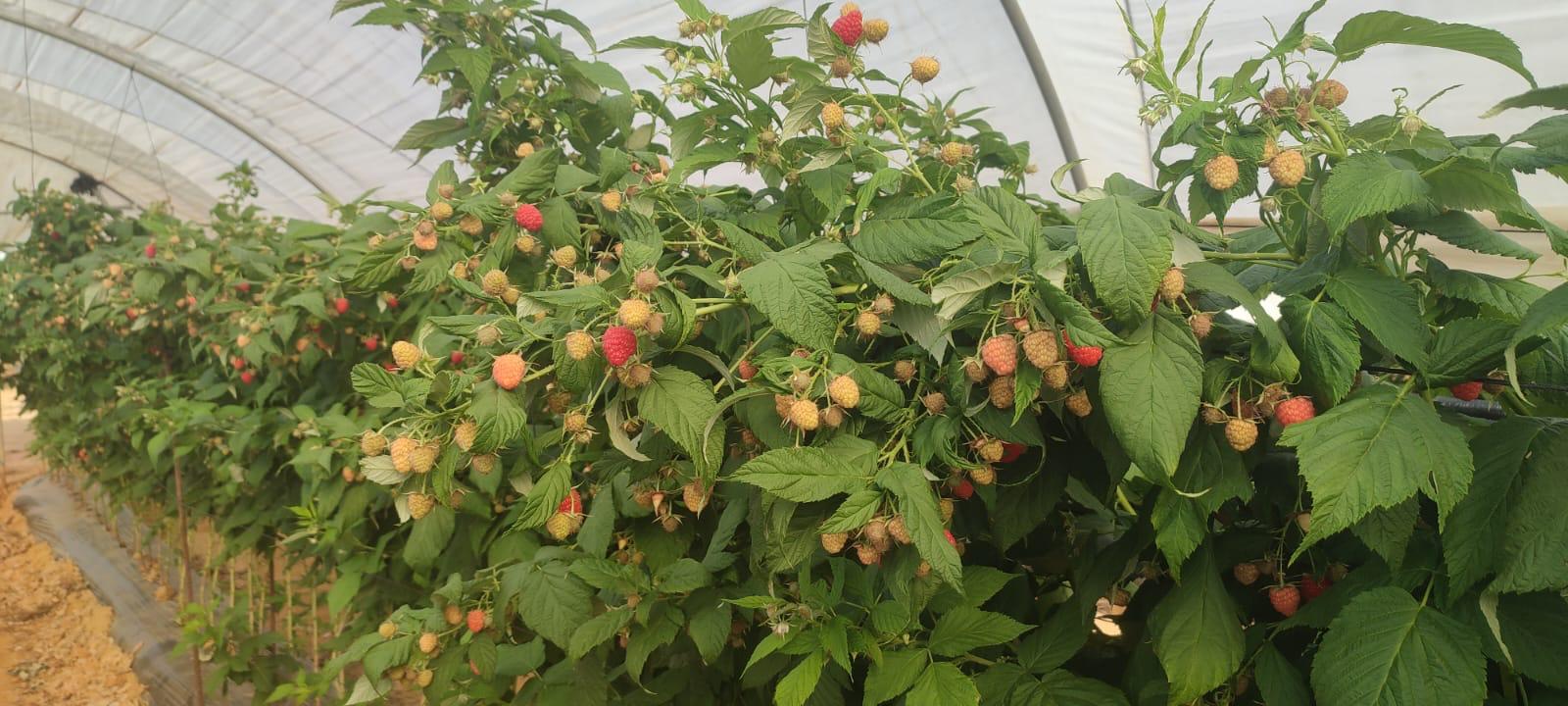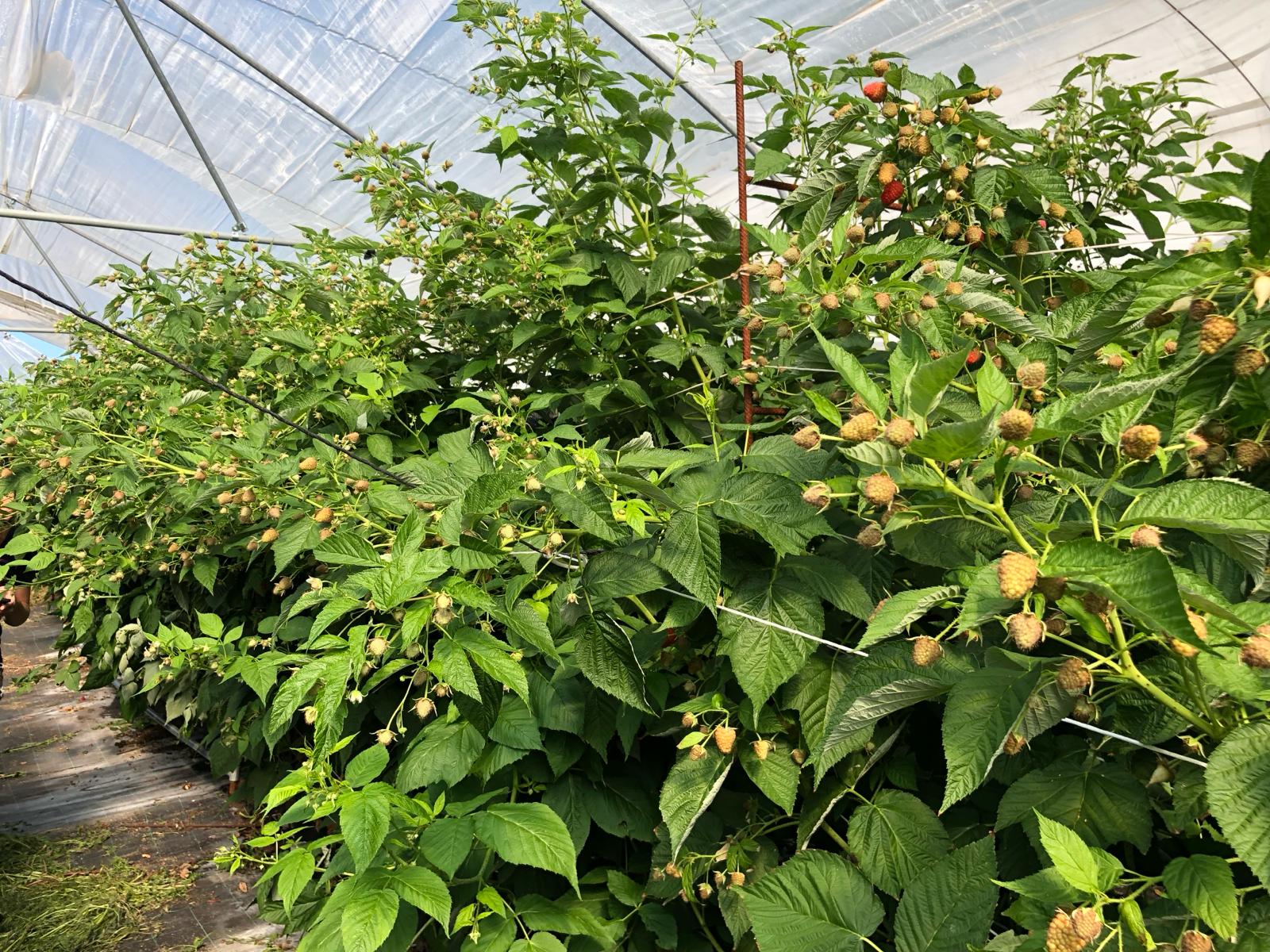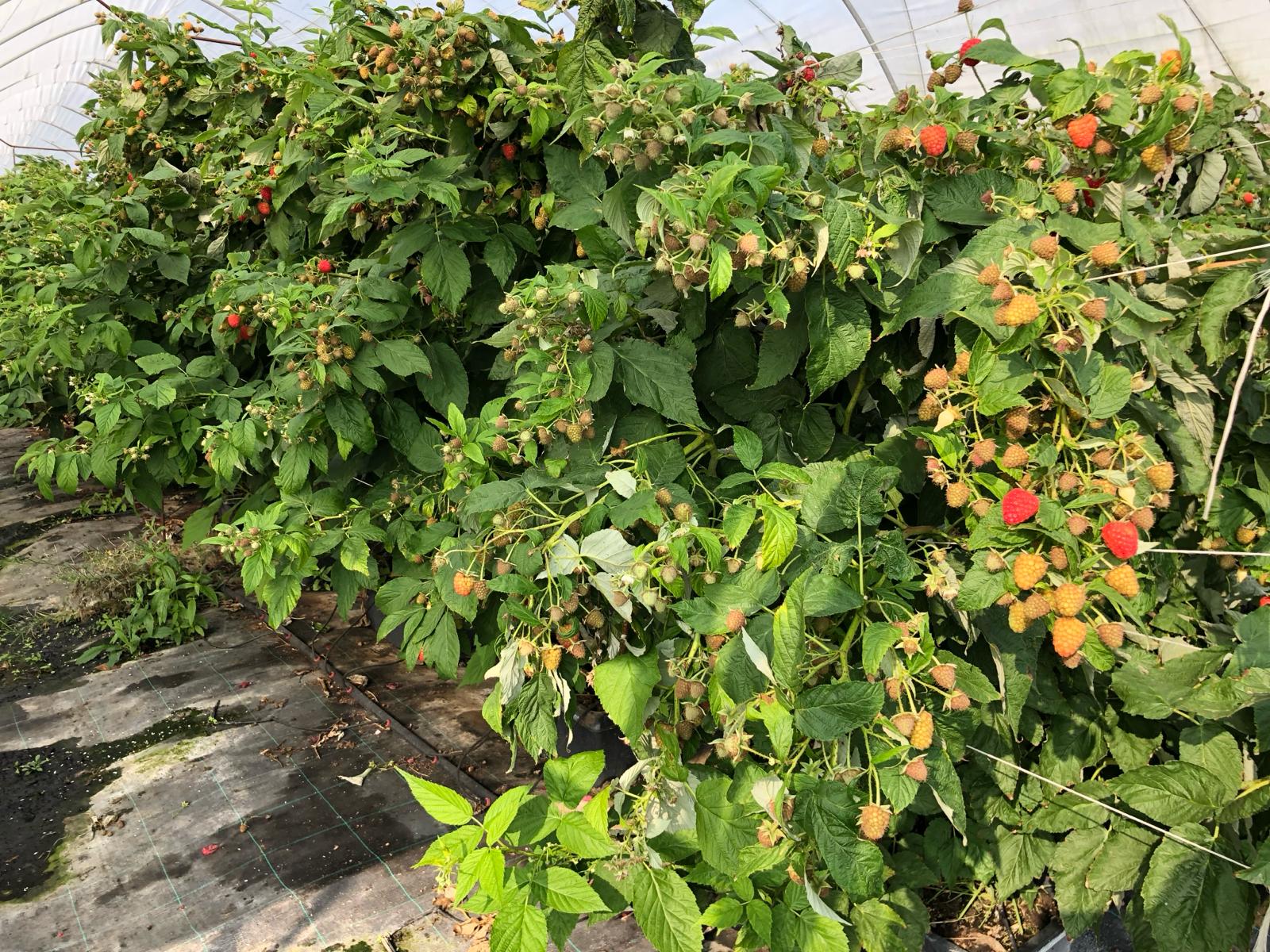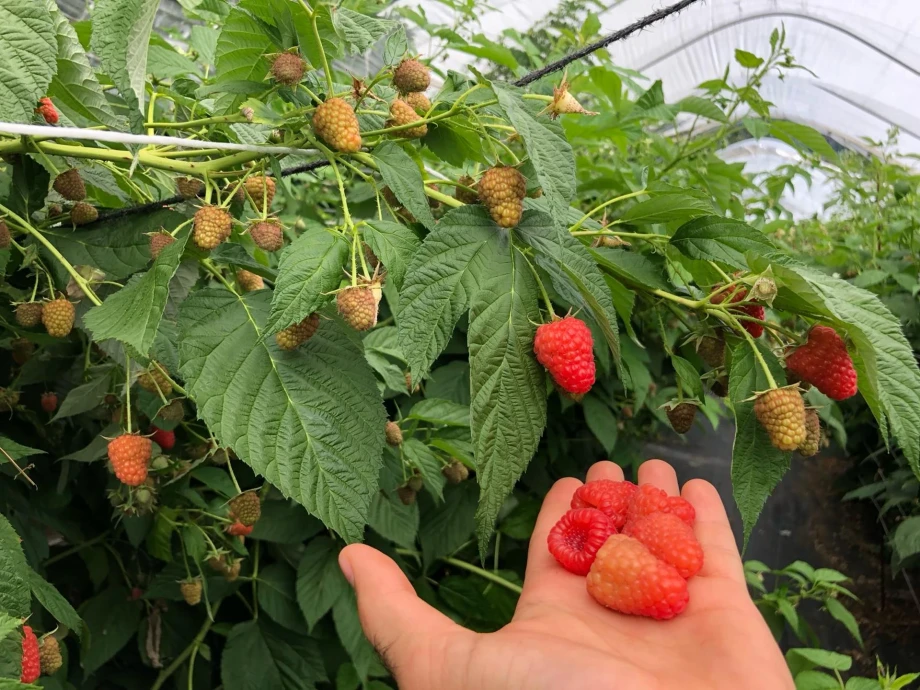It's been just over a year since the launch of Easy raspberries, presented in September 2022 in Verona at Lucchini Berries, where they were selected by Alessandro Lucchini.
Following the selection, the partnership with G-Berries allowed Easy raspberries to move into the commercial phase. In this exclusive interview, Luca Molari (Managing Partner of G-Berries) and Alessandro Gualandi (Variety Development Manager of G-Berries) review recent developments, which have seen the two varieties of Easy raspberries, EasyStar and EasyRock, leading a dynamic path of international diffusion.
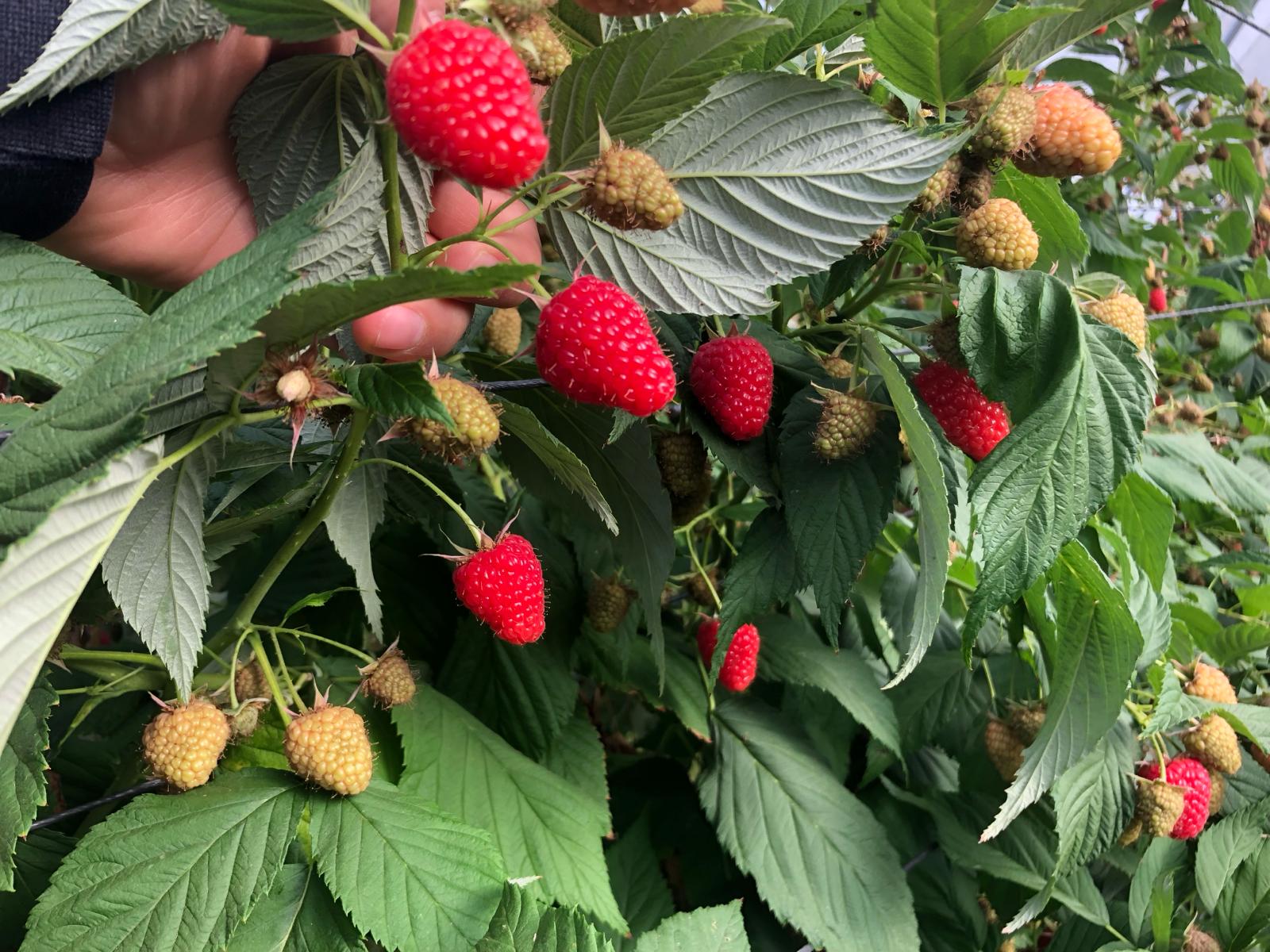 Easy Rock
Easy Rock
When was the Easy project born?
In September 2022, the launch in Verona with Alessandro Lucchini marked the beginning of a new era for Easy raspberries. From that moment, these extraordinary fruits left Lucchini's company where they were selected to conquer the European and global markets. The year 2023 was characterized by the first real commercial season in Europe, with the first quantities distributed in Italy, Spain, Portugal, the United Kingdom, Poland, the Netherlands, and Greece. However, the ambition was not limited to Europe, with projects taking a significant first step in Morocco, Mexico, and India.
How is the contract with producers managed?
In Europe, the strategy was to make Easy raspberry varieties accessible to all interested farmers, without imposed purchase or sale constraints. The approach adopted was to request a per plant royalty that is exhausted with the initial purchase, thus ensuring greater flexibility and freedom for growers. This approach was not conceived as a club, but rather as an open opportunity for all farmers eager to adopt a cutting-edge raspberry variety.
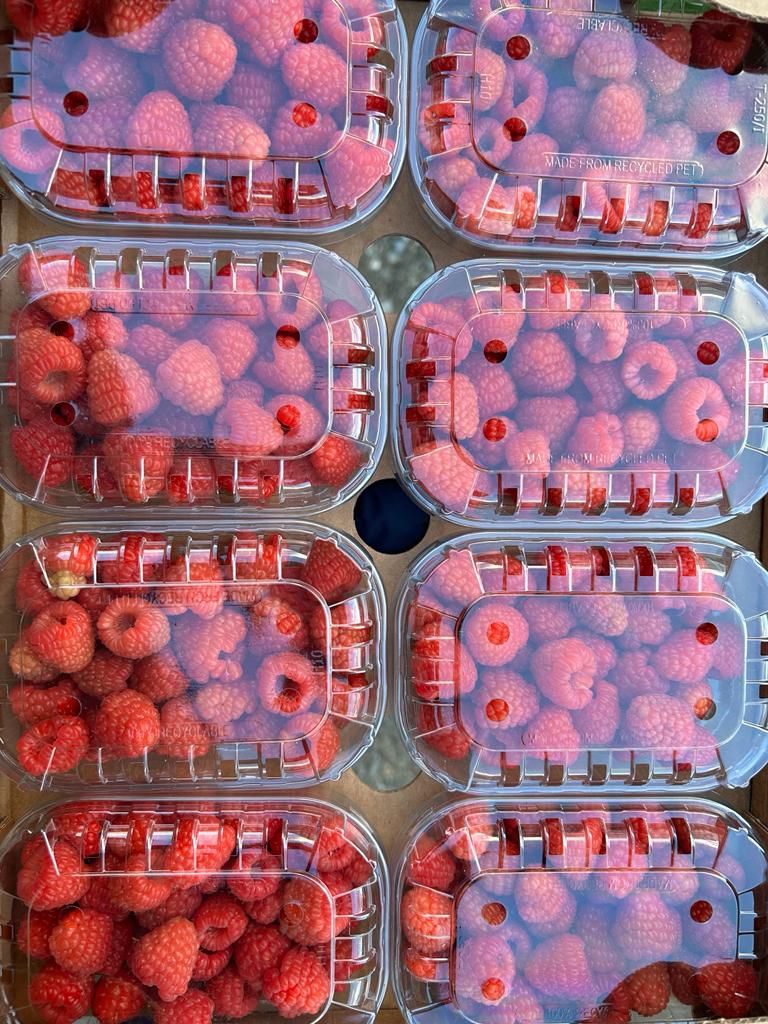
Do you have the same agreement with the non-European distributors?
Outside of Europe, in countries like Morocco, Mexico, and India, a more selective model based on a club-like form has been implemented. In Morocco and Mexico, several companies have engaged in two-year trials with the intention of evaluating the suitability of Easy varieties to start large-scale commercial projects. The results so far have exceeded expectations, with programs seeing a fivefold growth compared to initial forecasts.
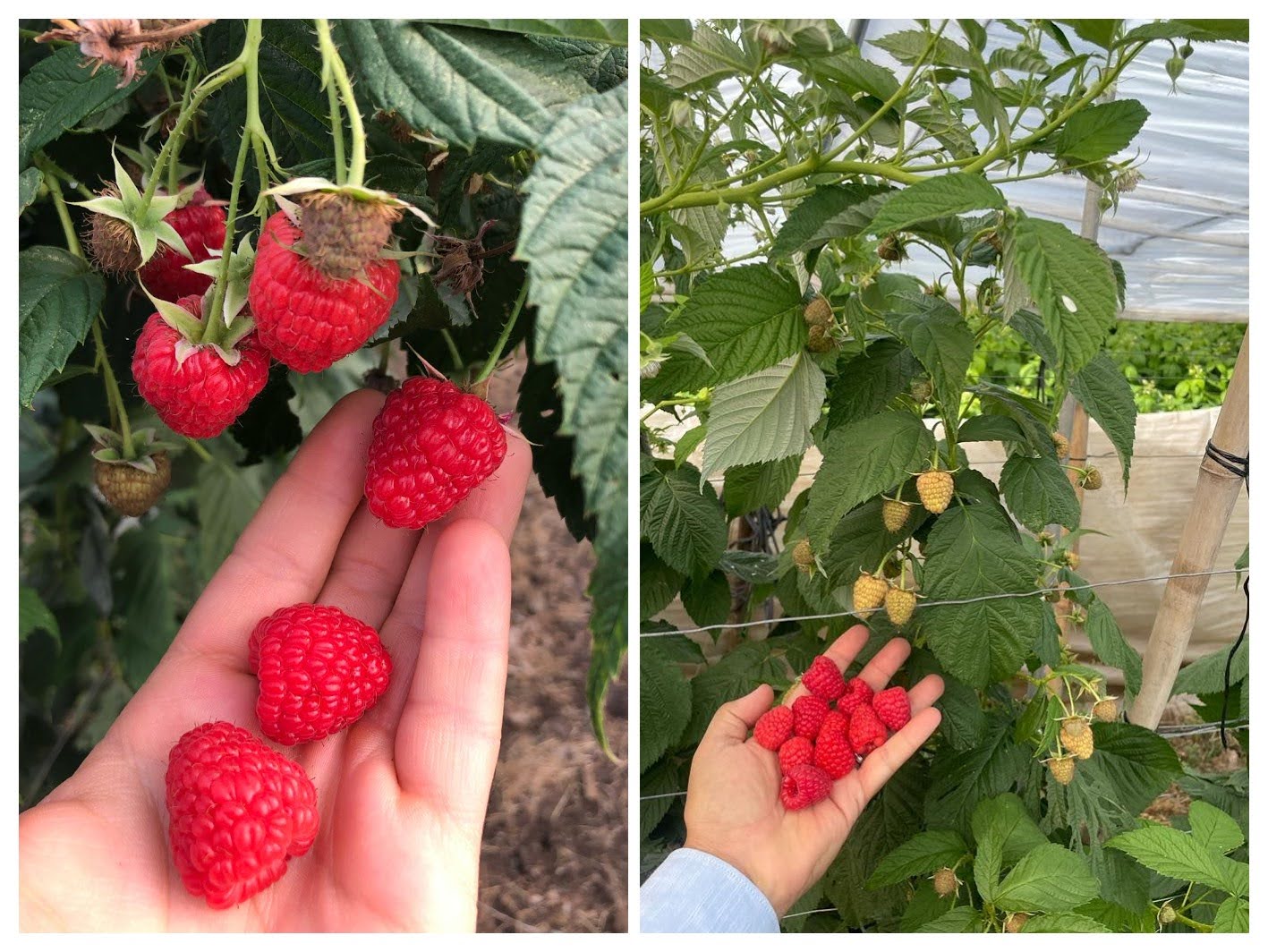 EasyRock in Mexico
EasyRock in Mexico
How is the introduction progressing in extra-European markets?
Mexico, in particular, has proven to be a market of great interest, with promising results from initial tests conducted in various areas. The production of EasyStar and EasyRock has adapted well to diverse climatic conditions, offering high yields in both seasons. Additionally, Mexico plays a key role as a raspberry supplier to the United States, parallel to Morocco's role as a producer for Europe.
However, successfully introducing new varieties is never an easy task. Farmers often prefer to use traditional cultivation techniques, gradually adapting them to new varieties. In this context, EasyStar and EasyRock have proven complementary, offering a long production window and consistent quality. These varieties, carefully selected by Alessandro Lucchini, have been designed not only to maximize yield but also to simplify the cultivation, harvesting, and management process.
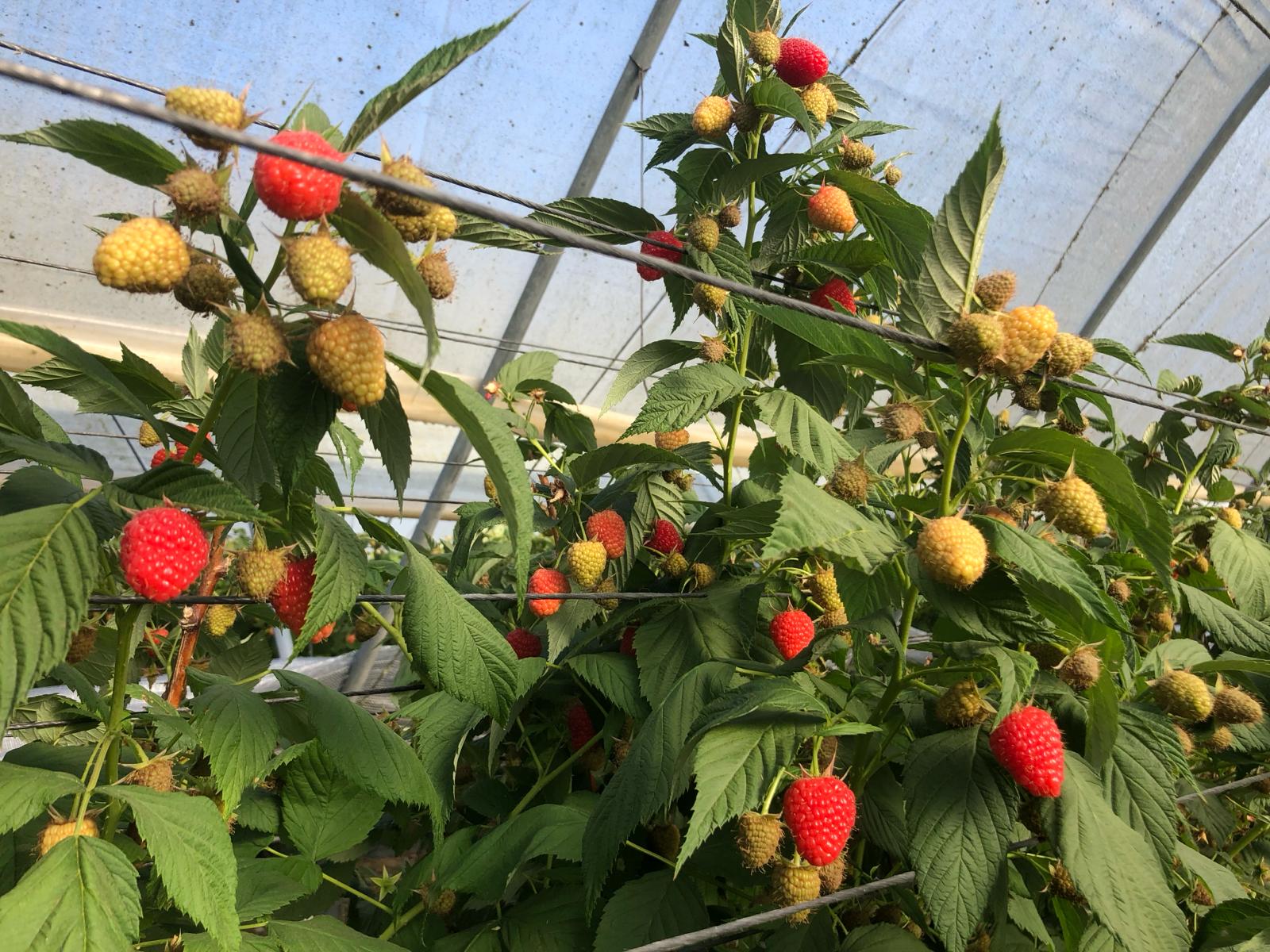 EasyStar
EasyStar
Which companies have you selected to distribute your varieties in different markets?
We chose companies primarily based on the longevity of the relationship and the global scope of the projects we have developed together: for example, the American multinational North Bay is our partner in various global production areas; other companies stand out for their high specialization or particularly dynamic and young profile.
In Mexico, we collaborate with Berry People, Wish Farms, and two multinationals like Dole and North Bay. In Morocco, Afripick, Venture Fruit, Vita Blue, and North Bay are part of the club. Our partners in India are North Bay and SSF Group.
EasyStar is showing good potential and would fill a production window which other varieties currently do not. Both EasyStar and EasyRock are showing potential to have a good shelf life after harvest. VentureFruit™ |
How are the different markets orienting towards the two Easy varieties?
So far, we've seen more interest in EasyRock in Mexico, while EasyStar has attracted more attention in Morocco. But in our opinion, the potential is for both varieties in both countries, and the next production cycle will also demonstrate this to local producers.
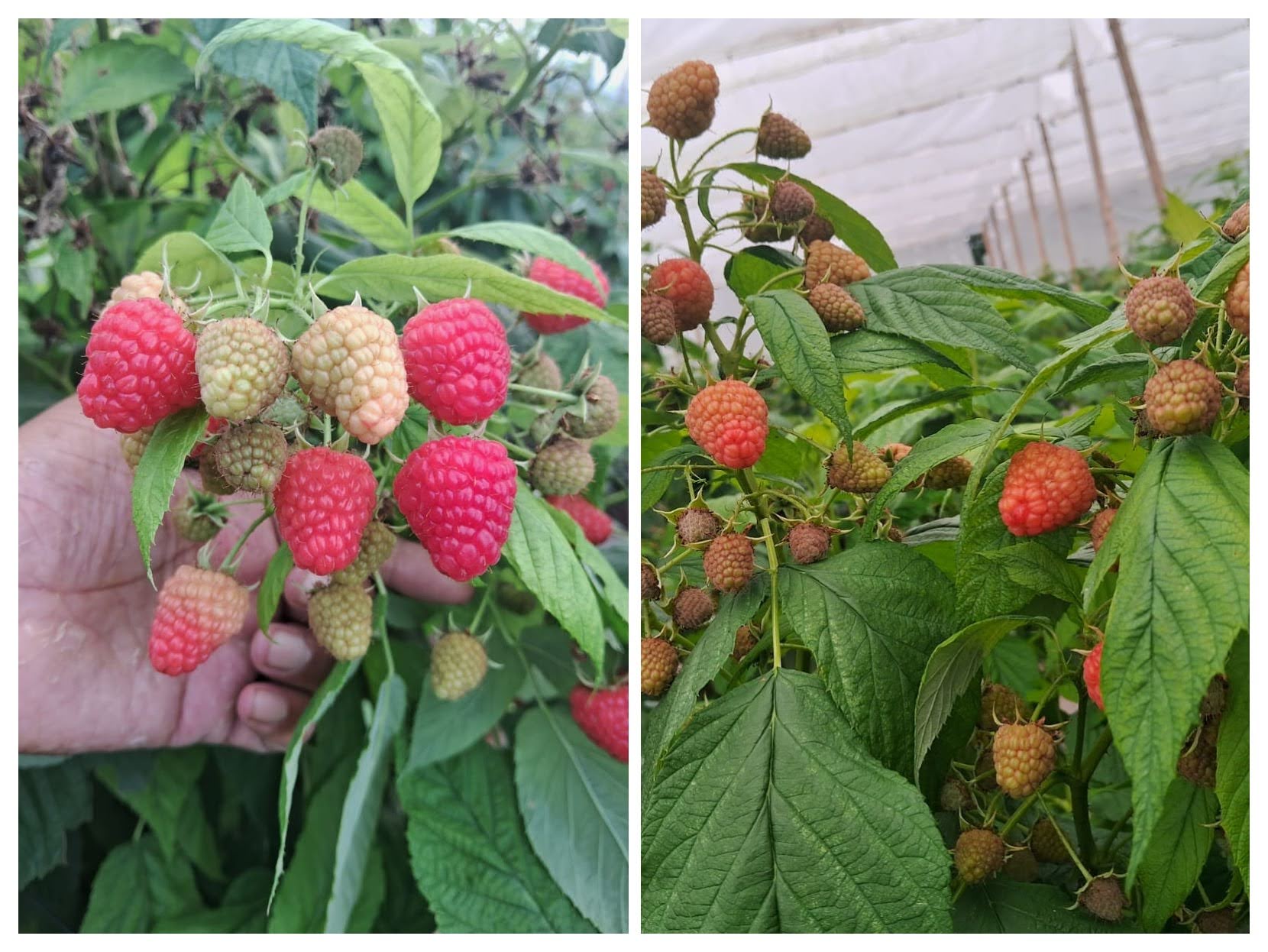 EasyStar in India
EasyStar in India
What are the main challenges you have faced so far?
Beyond European borders, India presents itself as a market with extraordinary potential but also with unique challenges. The extreme climate and complex logistics require a strategic approach and reliable partners. In this context, collaboration with multinational companies such as North Bay and SSF Group is crucial to ensuring success and protecting intellectual property.
What are the characteristics of the two Easy varieties in brief?
EasyStar is an evergreen, pure remontant variety: it produces even in winter in suitable climates and is very productive. For example, in Morocco, it produces from December to most of March (with about 1.5kg per plant). Lucchini's company, where Easy raspberries were developed, in a humid temperate climate (Verona), manages to produce over 2kg per plant, up to 35 tons per hectare (12,000 plants, about 3 kg per plant per whole year).
EasyStar is the best variety for growing: berry size is big 6 to 8 g, production consistency is there even in hot temperatures around 40 degree during the day, transportation is easier in domestic markets with good shelf life and keeping quality of fruits; suitable for our tough climate in India. Raiesh Gade, Managing Director SSF Group (India) |
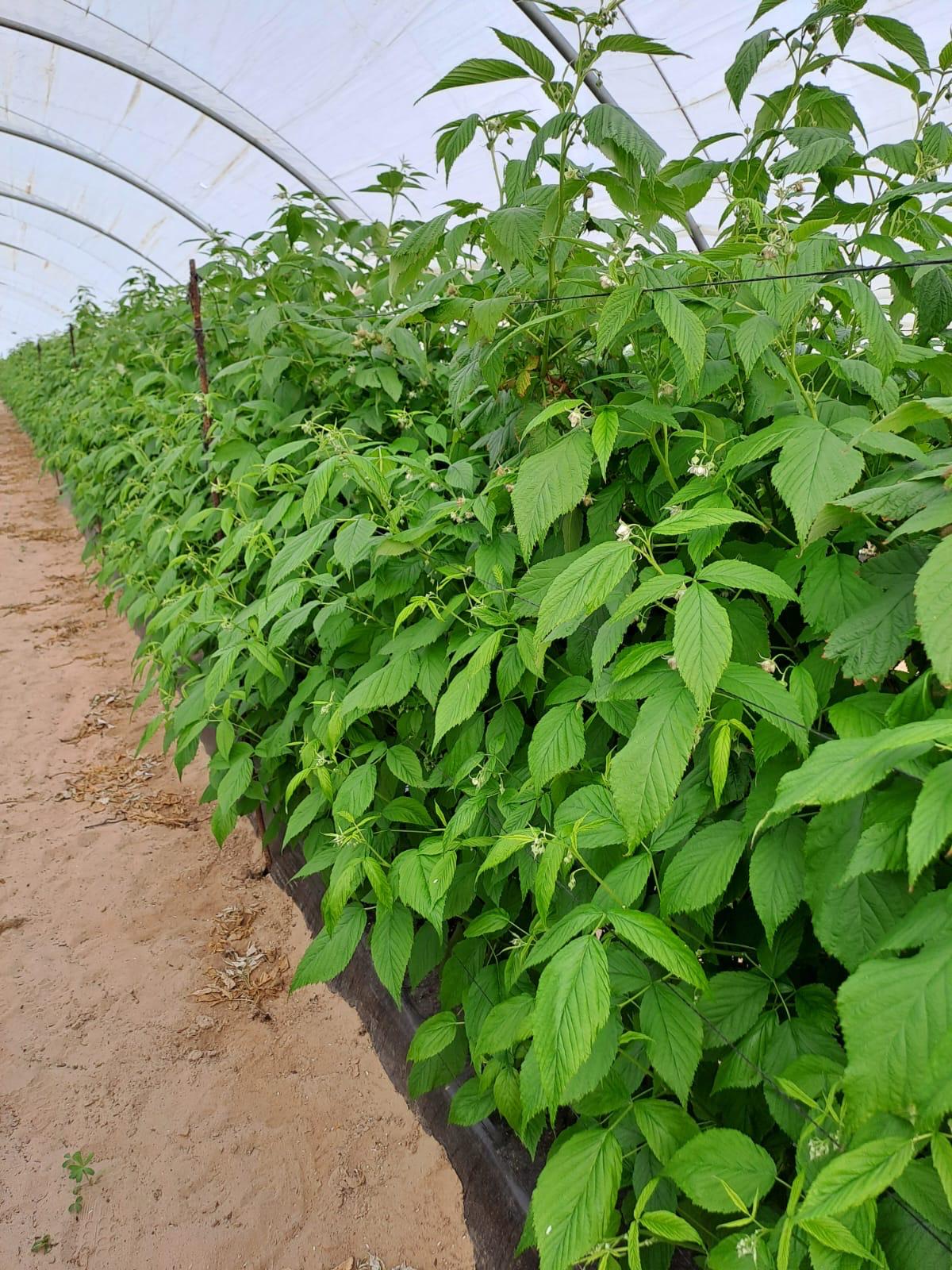 EasyRock long canes in Spain
EasyRock long canes in Spain
EasyRock is a everbearing variety, more oriented towards the double cycle (autumn and spring); it produces about 1kg per plant in autumn and 1.5kg in the spring production. Due to its morphology, it is suitable for being cultivated for long canes (scheduled production), which we are testing in Spain.
EasyRock has an advantage in terms of shelf life compared to other varieties; it has upper cane fruits character and produces strong primocanes every time; it has production consistency as well and average berry size is 7 g, with dark red colour and aroma. Raiesh Gade, Managing Director SSF Group (India) |
What are the advantages of long cane plants in current production contexts?
We are currently seeing a growing interest in this type of plant: the long cane plant is expensive but actually helps those with water scarcity. In fact, the plant, grown in a nursery (for example, in the Netherlands) and then cultivated in Spain for 4 months instead of the total 10 months, drastically reduces the water requirements in production areas that often suffer from drought problems.
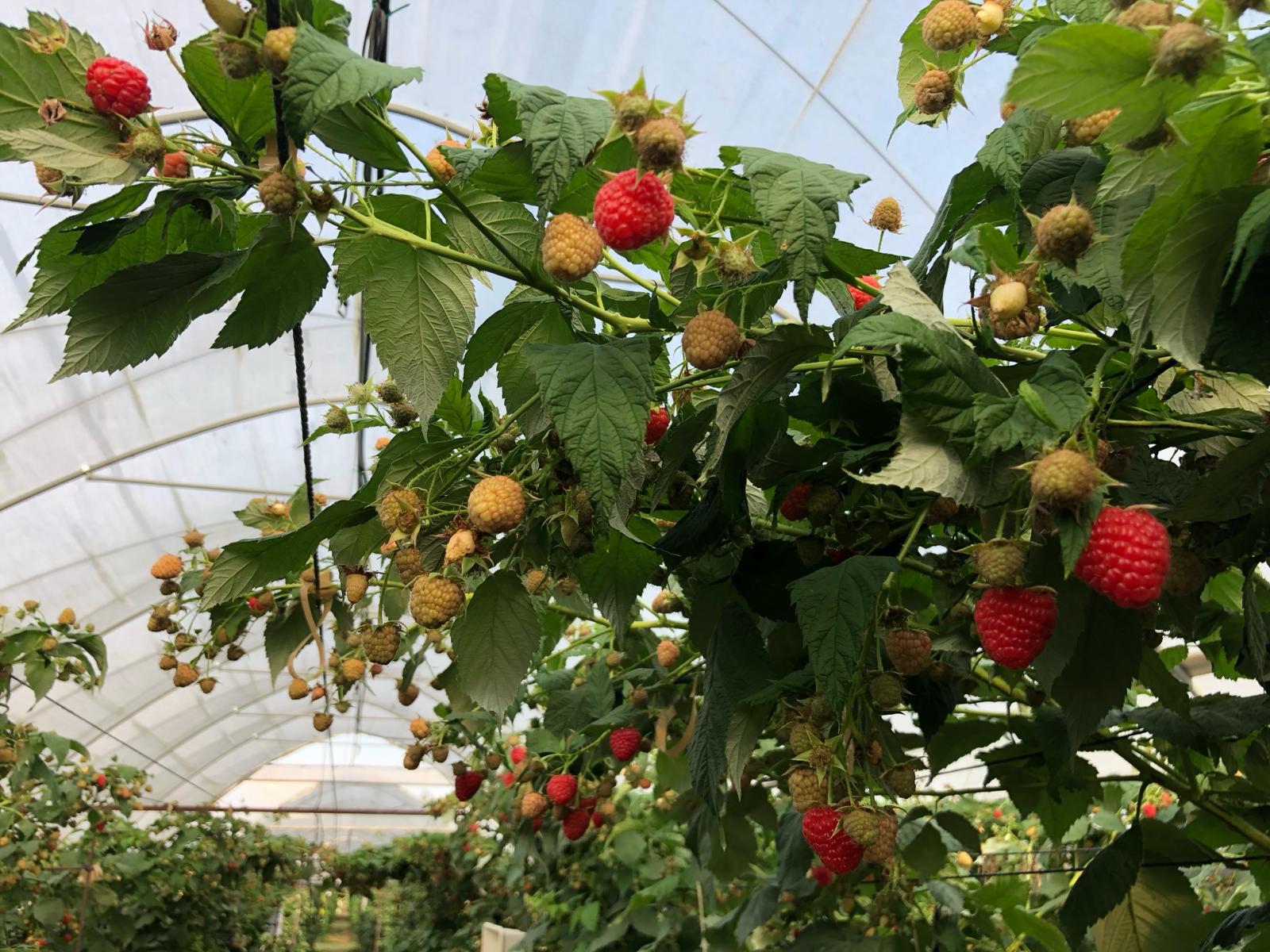 EasyRock
EasyRock
Unlike in the past, when it was important to produce, now it is also important to carefully consider the calendar to have production at the right time. It is important to have the production and plan well. This is achieved by managing plants in long canes but also with varieties that have a broad calendar with regular productivity.
Therefore long cane plants can help in programming the timing of the crops?
Indeed, while the initial focus was mainly on production, it is now equally important to carefully plan the calendar to ensure optimal product distribution. In this context, Easy raspberries stand out for their ability to adapt to different climatic conditions, maintaining high quality standards in all production phases.
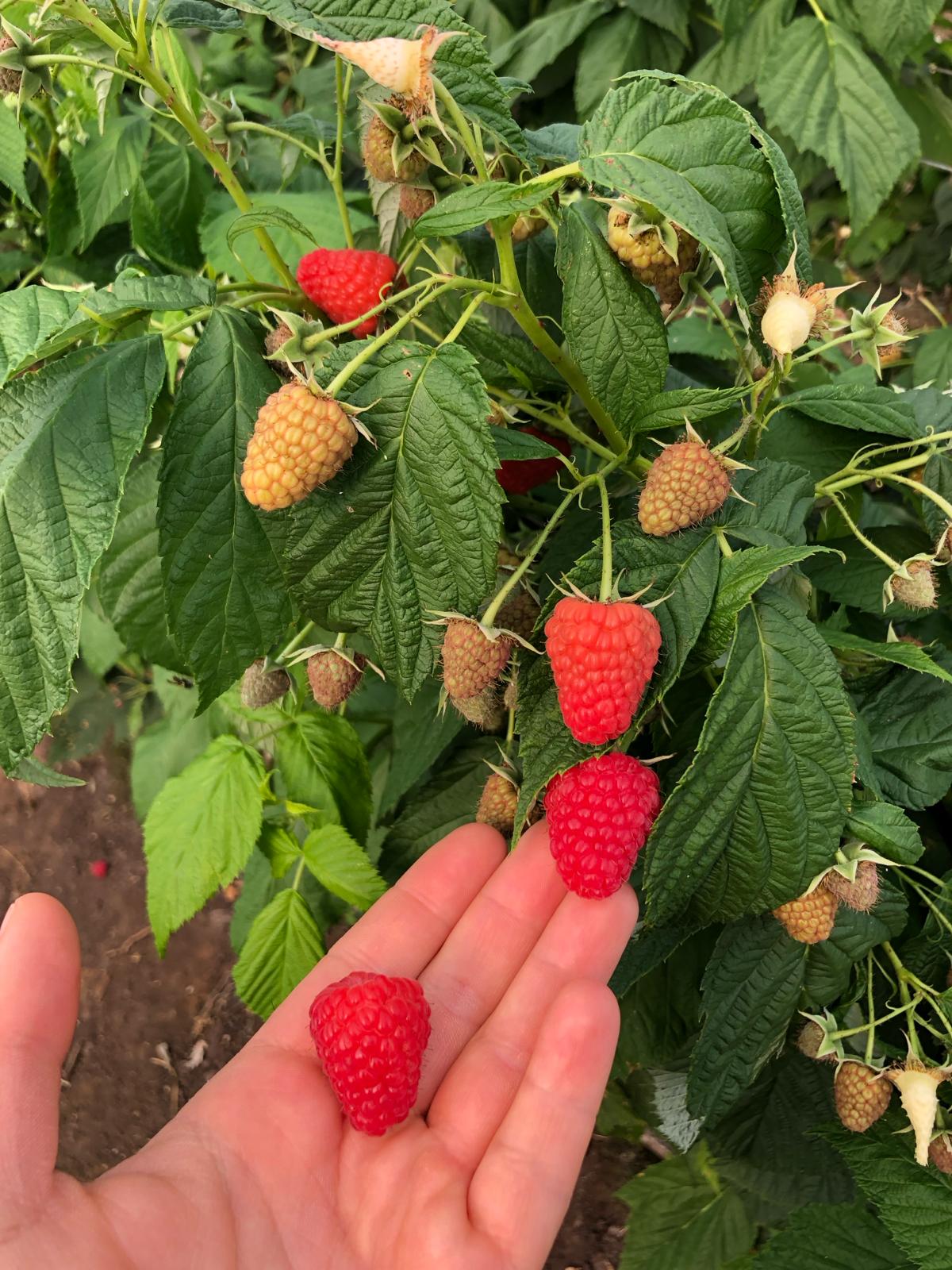 EasyStar in Mexico
EasyStar in Mexico
In conclusion, the international success of Easy raspberries is the result of an effective combination of innovation, collaboration, and adaptability. Through a strategic approach and trusted partners, Easy raspberries are conquering markets worldwide, bringing freshness and quality to consumers' tables in Europe, America, and beyond.
